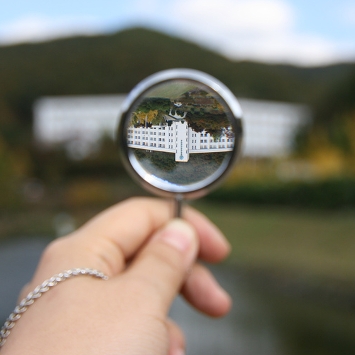Becoming more tolerant means opening your mind, listening to and respecting the opinions of others even when we don't share them. Find out how to develop this skill.

Last update: February 18, 2022
Tolerance is a fundamental virtue that we should all exercise, given that we live within a society and that we relate to others every day. Becoming more tolerant is useful, first of all, to avoid interpersonal discussions and conflicts. Moreover, it allows us to know the opinions and points of view of others. So why is it so difficult for us?
Human beings build their identity around their values, opinions and beliefs. That's why we try to protect this sphere and keep it intact over the years.
We actually feel that part of who we are comes into play when we are confronted with points of view that conflict with our own, especially if we are people who are not very flexible and tend to the dichotomous thinking of "black or white". However, if you want to start being more tolerant, there are several possible strategies to follow.
Ways to become more tolerant
Recognize personal bias
As we said, it is normal to try to keep one's beliefs intact. This is why we develop several cognitive distortions. For example, we tend to seek and accept information that matches our ideas, while at the same time we ignore or reject information that contradicts them. This mechanism is usually automatic and develops without full awareness. That's why considering this trend can help us open our minds.
Before you reject an idea, try to think about whether you are doing it because you really think it is not true or right or simply because it goes against your current position. Similarly, try to inquire about different points of view on the same subject, instead of staying put on your initial perception.
Opening up to diversity
Very often intolerance is the result of ignorance because we live in closed social circles and in little heterogeneous contexts. When this happens, we resort to stereotypes to judge a community or we support a position taken by everyone with respect to an idea that we actually fail to understand. To avoid this, nothing better than opening ourselves to diversity and novelty.
Traveling, discovering other cultures, talking with people of different nationalities, opinions and interests can greatly broaden our gaze. Having direct experience of other realities will certainly lead us to have a more open and tolerant attitude.
Listen actively
To be more tolerant, it is essential to learn to listen. Many of our discussions are nothing more than a struggle for power, in which, in reality, we are not interested in what the other has to say.; we do nothing but reply to his arguments (without even evaluating them) and impose our opinions as the only ones worthy of note.
Listening involves a demonstration of pure interest in the other person's words; it means listening to them, analyzing them, reflecting on them and asking useful questions to clarify her point of view. This process doesn't necessarily have to change our minds, but it will help us understand the other person's reasons and empathize with them.
Be willing to change your mind
As impossible as it may seem, sometimes intolerance is a reflection of the fear of losing those beliefs we have had for some time. Changing your mind is not easy, because it involves admitting that we are wrong and this can be perceived as a sign of weakness or failure.
Nothing could be further from reality: changing your mind is wise and there is no shame in adopting a different position after learning of facts we previously ignored. This is a sign of maturity and helps us to grow as people.
Becoming more tolerant doesn't mean changing who we are
First of all, remember that being tolerant doesn't mean agreeing with someone else's opinion, it just means respecting it. Each of us is unique and our tastes, interests and life decisions cannot always coincide; however, this does not mean having to reject others.
Maybe you don't share the lifestyle chosen by a friend, you disagree with your partner's opinion on a particular topic, or maybe you don't understand why another person has made a certain decision.
Yet intolerance will only cause suffering, anger and confusion, as well as creating interpersonal conflicts. Respect, listening skills and a more flexible mindset will help you create more harmonious relationships and, at times, even discover points of view that you had not previously considered.


























